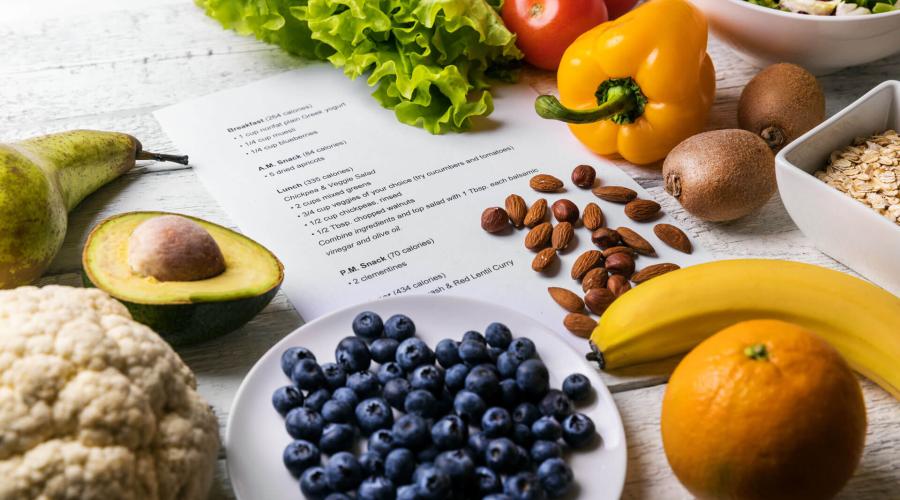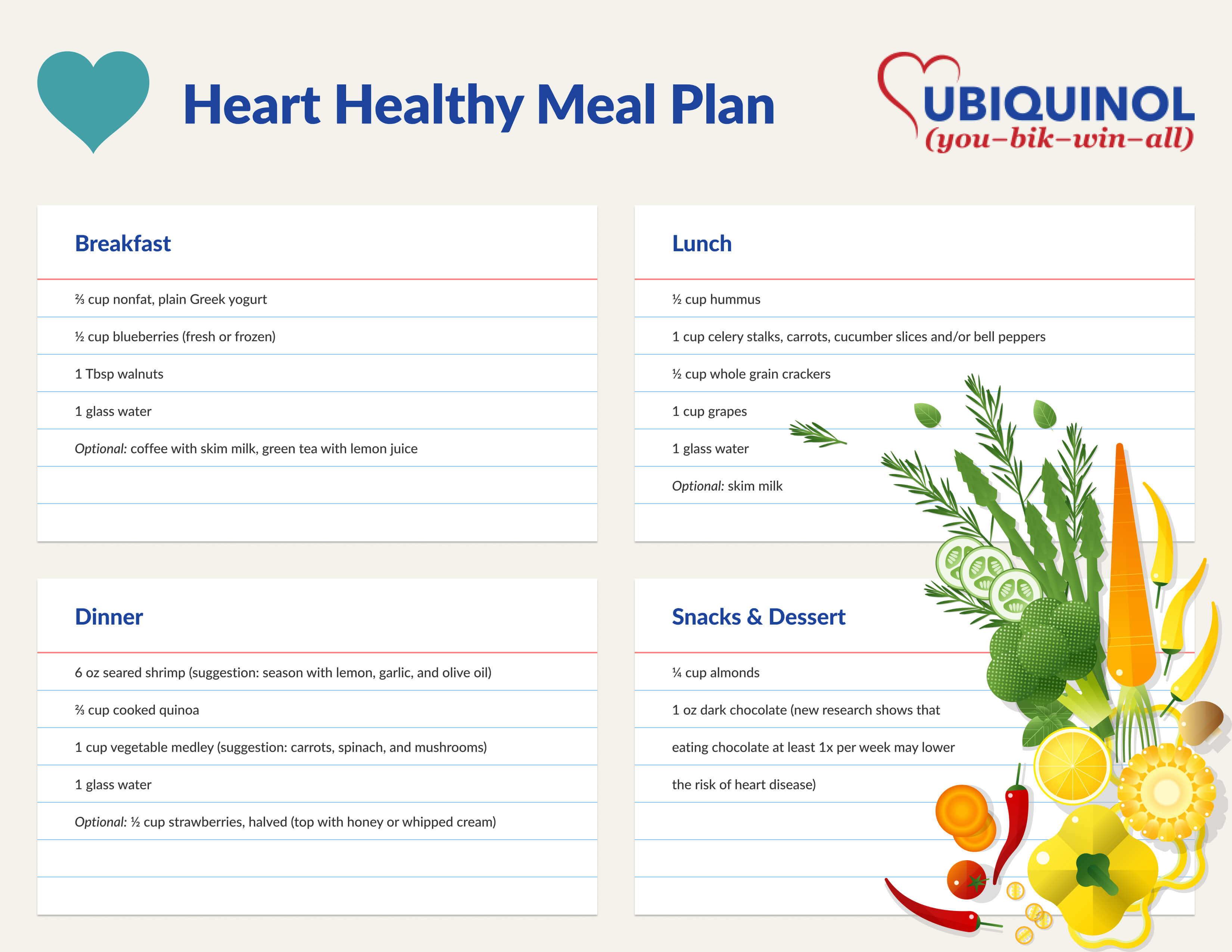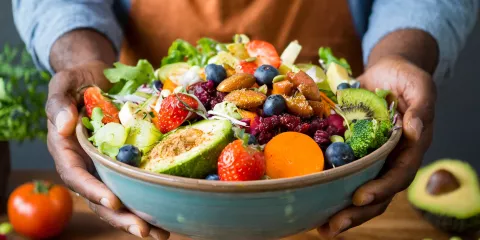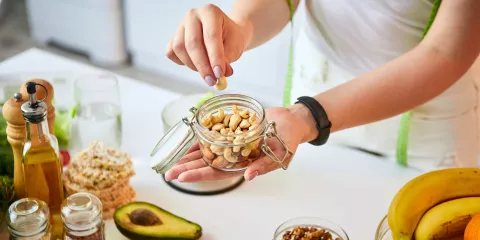
Heart-healthy diet guidelines have been around for decades, but why is heart disease still a top cause of death in the US? One risk factor is how we eat. Eating for better heart health can seem complex, so let’s whittle it down to 6 essential guidelines in this post. We’ve even included a 1-day meal plan so you can get started eating healthier today.
Heart-Healthy Diet Essentials
Following these 6 recommendations can set you on a path towards better cardiovascular health.
1. Get 3 servings of fruit per day
Along with vitamins and minerals, fresh fruit contains fiber. Fiber not only helps with digestion, but it can also reduce LDL “bad” cholesterol and your risk of cardiovascular disease (1). Try to get multiple servings of fresh fruit or plain, frozen fruit per day. Snack on fruit (like bananas, strawberries, raspberries) between meals or make it your dessert.
2. Fill half your plate with vegetables
One of the most effective ways to promote heart health is by eating plenty of non-starchy vegetables. Carrots, bell peppers, spinach, zucchini, tomatoes, and mushrooms are all examples of non-starchy vegetables that are low in calories and high in nutrition. Managing your weight while getting all the necessary vitamins and minerals is essential for reducing your risk of heart disease.
3. Make half your grains whole grain
Whole grains use the entire kernel of the grain. Quinoa, farro, brown rice, whole grain bread, and whole grain pasta are examples of whole grains that should replace refined grains and white grains. Whole grains tend to have more fiber and micronutrients that promote heart health.
4. Add in heart-healthy omega-3 fatty acids
Omega-3s are found in nuts, seeds, fatty fish, and plant-based oils (olive oil, flaxseed oil). Increasing your dietary intake of omega-3s can improve cardiovascular health (2, 3, 4). Read more about healthy oil alternatives to add to your diet.
5. Choose low fat or skim dairy
If you’re concerned about both heart health and cholesterol, you should also pay attention to how much unhealthy saturated fat you consume. Saturated fats are found in dairy, meat, processed foods, and fried foods. One simple change you can make to be heart healthy is to choose low fat (1%) or skim (0%) milk, yogurt, and cheese.
6. Opt for lean proteins and plant protein
Aside from saturated fats, red meat (beef, pork) and processed meat contain compounds that can increase risk of disease (5). Instead, choose lean proteins, which give you protein without all the fat. Skinless poultry, eggs, lowfat cottage cheese, lowfat Greek yogurt, shrimp, and whitefish are all lean proteins. Plant-based diets are shown to be the most cardio-protective, so try eating more plant-based proteins like tofu, beans, nut butter, and seeds (6).
Heart-Healthy 1- Day Meal Plan
Now that you know the essentials to heart-healthy eating, put it into practice by following this 1-day meal plan:
 Breakfast
Breakfast
- 2/3 cup nonfat, plain Greek yogurt
- ½ cup blueberries (fresh or frozen)
- 1 Tbsp walnuts
- 1 glass water
- Optional: coffee with skim milk, green tea with lemon juice
Lunch
- ½ cup hummus
- 1 cup celery stalks, carrots, cucumber slices and/or bell peppers
- ½ cup whole grain crackers
- 1 cup grapes
- 1 glass water
- Optional: skim milk
Dinner
- 6 oz seared shrimp (suggestion: season with lemon, garlic, and olive oil)
- 2/3 cup cooked quinoa
- 1 cup vegetable medley (suggestion: carrots, spinach, and mushrooms cooked in olive oil)
- 1 glass water
- Optional: ½ cup strawberries, halved (drizzle with honey or a dollop of whipped cream)
Snacks & Dessert
- ¼ cup almonds
- 1 oz dark chocolate (new research shows that eating chocolate at least 1x per week may lower the risk of heart disease)
Download The Printable Meal Plan
Applying these 6 simple guidelines to your meals may help you reduce your risk of heart disease and promote heart health. Make your whole week heart-healthy with our free cookbook!












